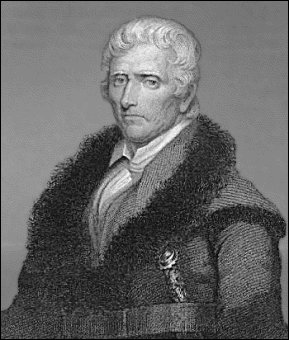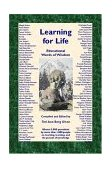

 Daniel Boone (1734-1820) Daniel Boone was an early American pioneer, explorer, and frontiersman who liked to go where other people didn’t go. He was one of America’s first folk heroes, a legend in his own lifetime, respected as a man of courage and integrity. Boone is most famous for his exploration and settlement of what is now the state of Kentucky, which was then beyond the western borders of the Thirteen Colonies. The trails he blazed helped open up the vast stretch of land west of the Appalachian Mountains. Boone was born on October 22, 1734, the sixth of eleven children in a Quaker family. When Daniel was just a boy, much of the country was still a wilderness inhabited by bears and other wild animals. Daniel grew up on a farm on the western edge of the Pennsylvania frontier, near the present-day town of Reading, where he tended his father’s cattle. Indians lived in villages nearby, and the pacifist Pennsylvania Quakers generally had good relations with them. Although Daniel did not attend school, he learned how to read, write, and do arithmetic. He would later sharpen those skills while working as a surveyor and trader. Even without formal schooling, Boone achieved a level of literacy typical of most men at that time. He developed a lifelong love of reading – The Bible and Gulliver’s Travels were favorites – and in the company of frontiersmen he was often the only one who could read or write. Boone would bring his books along on hunting expeditions so he could entertain his comrades by reading to them around the campfire. As a boy, Daniel enjoyed spending much of his time outdoors – hunting, fishing, and exploring. He often went alone to hunt and trap animals to help feed his family, and was given a rifle when he turned 12 years old. Although Daniel never did master how to spell very well, his father said, “let the girls do the spelling and Dan will do the shooting.” Boone became an expert woodsman, learning every trail through the forest. He was friendly with the Indians and followed their ways for surviving in the wilderness. They taught him how to move silently, making no sound and leaving no tracks. When Daniel was 16 years old, he and his family moved to Rowan County, North Carolina. This home of theirs was also on the edge of the wilderness. At age 20, Boone joined the British military as a wagon driver during the war against the French and Indians. After returning home, Boone married his neighbor’s daughter, Rebecca Bryan, on August 14, 1756. The couple would eventually have ten children. They lived in a cabin on his father’s farm, but preferring the woods, Boone took up hunting for his business. He gained a reputation as a great hunter. Every autumn, Boone went on a long hunt which lasted for weeks or months at a time. He and his fellow hunters gathered valuable skins and furs such as deer, beaver and otter, which they would then trade in for money. This is how dollars came to be known as “bucks,” after buckskins. By the way, contrary to popular myth, Boone never wore a coonskin cap but rather a wide-brimmed beaver hat, the kind favored by the Quakers. While serving in the North Carolina militia from 1759-1761 during the Cherokee War, Daniel Boone participated in some campaigns deep within Cherokee territory beyond the Blue Ridge Mountains. The rest of the Boone family fled to Culpeper County, Virginia at this time. Boone and his family returned to Rowan County in 1762. Four years later, they moved to a site farther west, near present Wilkesboro, North Carolina. In 1769, Boone went on a long hunting trip into what is now Kentucky, which at that time was still part of the unexplored western frontier. He crossed the Cumberland Plateau through a mountain pass named Cumberland Gap. Even though he was captured by Shawnee Indians while he was there, Boone thought the wild new land he found was a beautiful paradise. Returning home after two years, he told people about the big rivers, rich forests, and abundant supply of game. He urged them to settle in this new region with their families. Unfortunately, the first time Boone tried to do that, his eldest son was killed in an Indian attack and their party had to turn back. In 1775, Boone and about 28 other men were hired to cut the famous 300-mile Wilderness Road to the Kentucky River. In September of that year, Boone led a group of pioneers over the mountains along the trail he had blazed. Together they built a stockade and fort. Their settlement on the Kentucky River became the permanent town of Boonesboro, where the Boone family lived for many years even in the face of Indian attacks. Boone’s wife and daughter were the first white women to live in Kentucky, and when his daughter was captured by Shawnees, Boone rescued her. Despite all the tales that were told of Boone’s skill as an “Injun fighter,” as a Quaker he found no pleasure in violence. During a battle with the Shawnees in February 1778, Boone was once again captured. He was held captive for months and even adopted into the tribe by their chief. But after hearing of their plans to attack Boonesboro, Boone made a daring escape. He travelled more than a hundred miles in a few days on foot and by horse, hurrying back to warn the people and to aid in their defense. During the 1780’s, Boone was a county militia officer and served as a guide for settlers coming in from the East. As the area’s population grew and game started becoming scarce, Boone moved his family to West Virginia. In 1798, when he was 65 years old, Boone moved once again, this time to Missouri. From there he resumed his trapping, journeying far and wide, perhaps even as far west as the Platte River and into Yellowstone country. In his later years, Boone worked as a magistrate, holding court beneath a towering elm known as the Judgment Tree. Boone died in 1820, just a few weeks short of his 86th birthday. A monument to honor him stands at his grave. Some of the trails are monuments to him, too. The Boone Trail is marked all the way from North Carolina to Boonesboro. Daniel Boone inspired three future American heroes – Davy Crockett, Kit Carson, and William “Buffalo Bill” Cody. Boone served as a model for the hunter-heroes in James Fenimore Cooper’s adventure novels, and even the English poet Lord Byron wrote a tribute to Daniel Boone in his romantic epic Don Juan:
“Of the great names which in our faces stare, Boone’s presence in popular culture continued throughout the twentieth century. Daniel C. Beard, founder of the Boy Scouts of America, originally considered calling his group the Sons of Daniel Boone. The frontier hero was featured in films, radio programs, TV shows, and comic strips. Ironically, in the “Daniel Boone” television series with which most people are familiar, actor Fess Parker portrayed him with a completely different persona as more of a Davy Crockett figure. Did You Know...? Pat Boone, the top-selling recording artist and actor, says he is a descendant of Daniel Boone. References Faragher, John Mack. Daniel Boone: The Life and Legend of an American Pioneer. New York: Holt, 1992. http://www.berkshistory.org/articles/earlyboone.html http://www.danielboonehomestead.org http://shs.umsystem.edu/famousmissourians/explorers/dboone/dboone.shtml www.earlyamerica.com/lives/boone http://mdc.mo.gov/kids/out-in/1998/1/3.html
Contact: . Thanks! Please click here for reprint permission.


These pages are a continuous work in progress.
|
Help Support this Site
and purchase items via our affiliate links. Thank you!
 
Thank you for visiting my |

